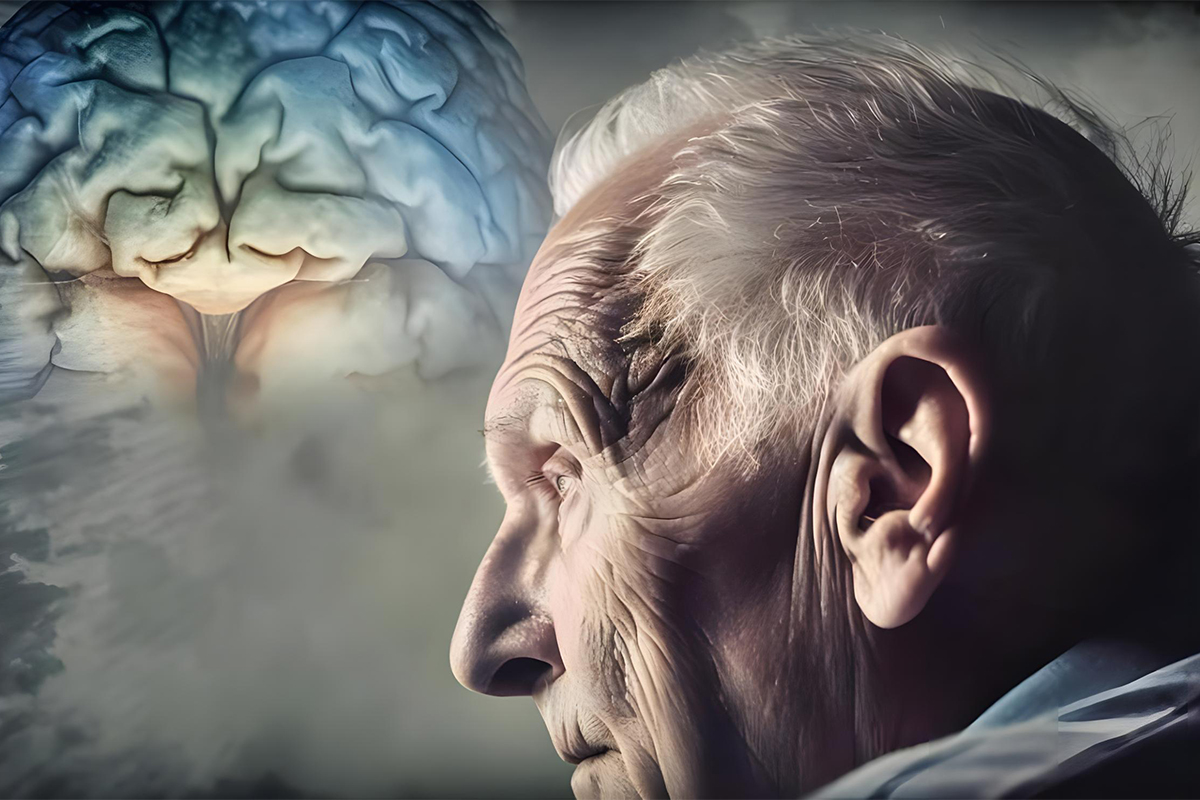Recent research indicate that neurological diseases are the main cause of disability in life, among which frailty is an issue that has attracted the attention of geriatric medicine in recent years. Frailty is a comprehensive symptom that manifests in physical, social and cognitive aspects. The etiology of frailty is multifactorial and its pathophysiology is influenced by multiple factors. Scholars have proposed four main mechanisms of frailty: atherosclerosis, cognitive deterioration, malnutrition and sarcopenia, and related metabolic abnormalities. Dementia is also a common health problem among older adults, and cognitive impairment is considered part of frailty. Scholars have conducted many studies on the connection between physical frailty and cognitive impairment and found that there is an important connection between the two phenomena.

Physical frailty and cognitive impairment
Alzheimer's disease and Parkinson's disease are major neurodegenerative diseases in the elderly. Alzheimer's disease is characterized by progressive cognitive loss of memory, language, and Parkinson's disease by severe motor symptoms including uncontrollable resting tremor, muscle stiffness, diminished postural reflexes, and bradykinesia. In addition, the molecular mechanisms are also different between diseases. Alzheimer's disease is marked by overproduction of beta-amyloid peptide synthesis, while Parkinson's disease is marked by dopamine and accumulation of alpha-synuclein. The complete mechanisms leading to the onset of these two diseases are not yet clear. But with age, there is increased senescence of neurons and microglia, mitochondrial dysfunction, oxidative damage to proteins and lipids, and the accumulation of DNA damage. The brain is particularly susceptible to oxidative damage, and as we age, neurons reduce glucose transporters, resulting in reduced glucose uptake in the brain.
Currently, the symptoms of Alzheimer's disease can only be treated with drugs. In the future, we hope to find dietary treatments that delay or prevent the onset of the disease. Globally, improper diet is a risk factor for non-communicable diseases. The 2017 Global Burden of Disease Study found that 11 million deaths and 255 million disabilities were attributed to dietary risk factors, such as high sodium intake, whole grain Low intake and insufficient fruit intake. Therefore, the elderly can prevent frailty, nutritional deterioration, and weight loss through nutritional intervention.
Antioxidants: Key to reducing cognitive decline?
The brain is very sensitive to oxidative damage caused by free radicals. Therefore, reducing oxidative reactions and protecting mitochondria may be very important. Antioxidants can destroy the propagation of free radicals or inhibit the formation of free radicals through different mechanisms. Antioxidants help remove excess peroxide and prevent the formation of peroxides. In addition to the antioxidant enzymes produced by the human body, antioxidants such as minerals, vitamins, carotenoids, glutathione and polyphenols are essential for the antioxidant defense mechanism of cells and organisms. Humans cannot synthesize ascorbic acid (vitamin C) and tocopherol (vitamin E) on their own, so they must be obtained through food. On the contrary, substances that can be synthesized in the human body and have antioxidant effects include glutathione, lipoic acid, uric acid, taurine, melatonin, coenzyme Q, and melanin, but the synthesis ability also decreases with age.

Carotenoids prevent neuropathy?
Carotenoids are natural organic compounds produced by plants and algae. In addition to their antioxidant activity, carotenoids also help regulate the cell cycle, enhance the immune system, modulate cell signaling pathways, and promote growth factors. Carotenoids are highly lipophilic molecules that reside within cells to protect cell membranes from oxidative reactions. The effects of carotenoids on the pathophysiology of Alzheimer's and Parkinson's diseases have been extensively studied, delaying disease progression by inhibiting oxidative reactions, reducing the production of amyloid peptides, and suppressing inflammatory cytokines. b-carotene (vitamin A) has potent antioxidant activity, particularly providing antioxidants with protective effects in lipid-rich tissues such as neurons. Therefore, b-carotene can neutralize lipid peroxidation. Dietary intake of b-carotene has been reported to reduce the incidence of Alzheimer's disease and other related dementias. In addition, b-carotene can improve mitochondrial function. Recent studies have pointed out that mitochondria may be a therapeutic target for neuropathy. Therefore, some scholars have suggested using b-carotene to prevent neuropathy.
Moderately improves mitochondrial potency
Oxidative reactions are important factors in the development of cognitive decline. Therefore, increasing antioxidants in the diet may be a way to treat neuropathy. For example, taking glutathione itself has a strong antioxidant capacity, can effectively scavenge free radicals, and regulate the protective power of body functions. It is an indispensable and important element in the body. Therefore, the content of glutathione in the body, Not only has it been proven experimentally to be the key to good health. Glutathione can also improve the mitochondrial efficacy of neuropathy treatment targets, reduce lactic acid accumulation, and reduce fatigue and discomfort.
(Reference source: China Medical University Hospital website【Alzheimer's disease, Parkinson's disease, dementia, cognitive function and diet and nutrition】, the image and text have been edited and the subtitles have been added).


